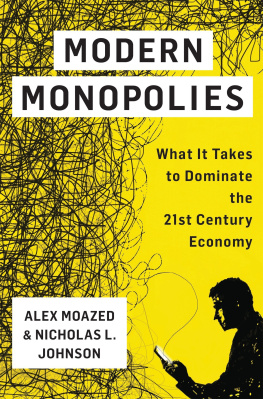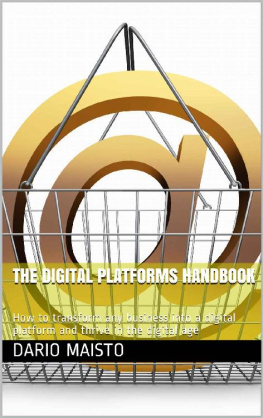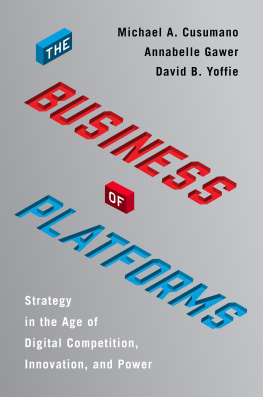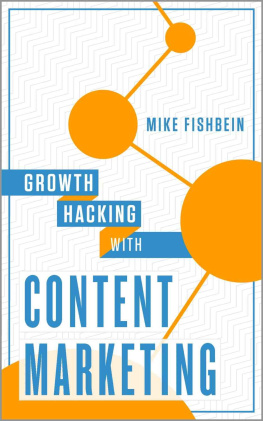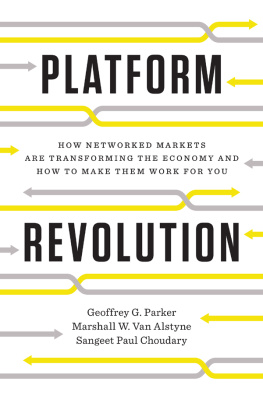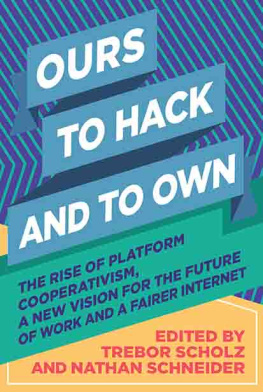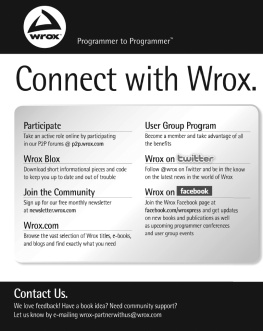Modern Monopolies
What It Takes to Dominate the 21st-Century Economy
Alex Moazed and Nicholas L. Johnson

St. Martins Press
New York
Thank you for buying this St. Martins Press ebook.
To receive special offers, bonus content, and info on new releases and other great reads, sign up for our newsletters.
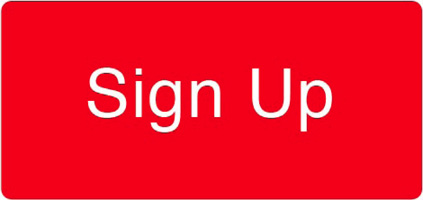
Or visit us online at us.macmillan.com/newslettersignup
For email updates on the author, click here.
The author and publisher have provided this e-book to you for your personal use only. You may not make this e-book publicly available in any way. Copyright infringement is against the law. If you believe the copy of this e-book you are reading infringes on the authors copyright, please notify the publisher at: us.macmillanusa.com/piracy .
For Janet and Bonnie,
the two best moms we know
It was February 2011, and Nokia had a problem. Once an undisputed leader in mobile technology, the company no longer could keep up with its competitors. For over a decade, Nokia had been the worlds most successful handset manufacturer. But now it was losing ground. Fast.
With Apples introduction of the iPhone in 2007 and Googles unveiling of Android in 2008, the rules of the game had changed. These were hugely successful software platforms in what was once a hardware-centric industry, and Nokia was nowhere near that stage. Its legacy operating system, Symbian, was outdated and difficult to develop software for and its next-gen operating system, MeeGo, still wasnt ready for prime time.
How quickly things changed. Only a generation before, Nokia had been an ailing Finnish conglomerate with stakes in everything from lumber to tires. But in the late 1980s and early 1990s, the company executed what the American Management Association called one of the 50 Best Management Saves in historysuccessfully shifting focus to the mobile communications industry. There was good reason for optimism that Nokia could pull off another miracle.
In September 2010, the company hired former Microsoft executive Stephen Elop as CEO and charged him with turning its business around.
Elop faced an important choice right away. Should Nokia stick with trying to develop its next-gen operating system? Or should it abandon this approach in favor of hitching its wagon to an established competitor? In January 2011, Nokias management was still leaning toward the former until a critical meeting changed Elops mind. Jo Harlow, Nokias head of Symbian, told Elop that MeeGo wasnt mature enough and that Symbian couldnt hold Nokia over until the new operating system was ready. A partnership with Apples tightly controlled iOS was out of the question, so Nokia was left deciding whether to pin its hopes on the nascent Windows Phone or Android.
This shift in strategy, combined with the challenge of overcoming a sclerotic bureaucratic structure, convinced Elop that the company needed to change direction. On February 4, 2011, he issued to the companys employees what came to be known as the Burning Platform memo. The memo, leaked to the public a couple of days later, compared the task Nokia faced to the story of an oilman standing on a burning oil platform.
As the fire approached him, the man had mere seconds to react, Elop wrote. He could stand on the platform, and inevitably be consumed by the burning flames. Or, he could plunge 30 meters in to the freezing waters. The man was standing upon a burning platform, and he needed to make a choice. In Elops tale, the man chose to dive into the water and, against the odds, managed to survive. But the experience radically changed his behavior. The metaphor for Nokias troubled situation was clear. We too, [ sic ] are standing on a burning platform, Elop wrote, and we must decide how we are going to change our behavior.
The memo went on to detail many of the challenges Nokia faced. The first iPhone shipped in 2007, and we still dont have a product that is close to their experience. Android came on the scene just over 2 years ago, and this week they took our leadership position in smartphone volume. MeeGo was supposed to be Nokias answer to the competition, but by the end of 2011, we might have only one MeeGo product in the market, Elop wrote. At the same time, Nokias legacy operating system, Symbian, was proving to be an increasingly difficult environment in which to develop and leading to slowness in product development. Even worse, while Android and the iPhone were attacking from above at the high end of the market, Chinese manufacturers were starting to make inroads from below with cheaper options.
These challenges were serious. But they were also all symptoms of Nokias single biggest failure, one that Elop implicitly recognized. Nokia had missed the transformative convergence of software and hardware. It was still acting like a product company. But now the smartphone industry wasnt really about the product; it was about the platform.
Were not even fighting with the right weapons, Elop said. We are still too often trying to approach each price range on a device-to -device basis. The battle of devices has now become a war of ecosystems [emphasis added].
Speaking to the Financial Times a month after the memo was leaked to the press, Nokias Harlow agreed. Our ability to change from being device-led to being software-led as the industry changed hasnt been fast enough, she said. We could have been in a different position if we had been able to make the transition more quickly.
Nokia was used to competing on specs or features. But, as Elop said in his memo, our competitors arent taking our market share with devices; they are taking our market share with an entire ecosystem. Elop was right. Apple and Android had taken a platform approach, building unprecedented networks of consumers and developers by connecting the two sides en masse. These other platforms didnt win because of superior features or technology. (At the time, several Nokia phones were highly reviewed.) They won because of their ability to create whole new markets and tap into new sources of value. Elop saw it coming, but not soon enough.
Two days after the memo was released to the public, on February 11, 2011, Elop announced Nokias decision to switch to Windows Phone. Elop had spoken with Google about switching to Android, but he was wary of Nokia becoming just another hardware manufacturer in an already crowded Android device market.
Unfortunately for Elop, this decision was another mistake. Neither Nokia nor Windows Phone fared well over the next several years.
On September 3, 2013, after a few years of desperate experimentation, Elop announced that Nokia was selling its Devices and Services division to Microsoft in a deal that would be worth $7.2 billion. The sale was a clear admission of failure by Nokia, which was jettisoning all of its manufacturing and supply-chain capabilities and in essence becoming a technology and IP licensing company.
By the beginning of 2014, Nokias market capitalization had declined to $30 billion. This was a stunning fall from a decade earlier, when the companys market cap topped $200 billion. Elop had been right that Nokia was on a burning platform. But unlike the man in Elops story, Nokia couldnt survive.
A Platform Awakens
The release of Elops burning platform memo torpedoed Symbian. Despite being outdated and on the decline compared to iOS and Android, at the time Symbian still held the highest market share of any mobile phone operating system. Although Symbian was not likely to stand up against its new competitors for long, Elops memo hastened its decline.
Next page
